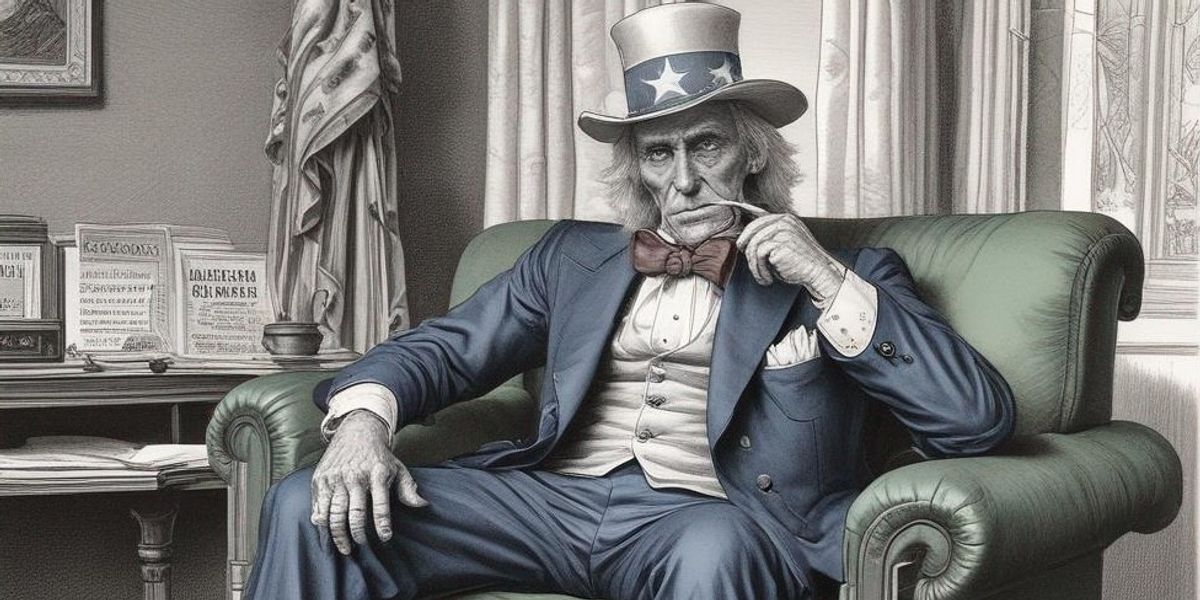Is America experiencing a crisis of confidence? That is the assessment of some world leaders from allied and partner nations in recent months.
Former NATO Secretary General Anders Fogh Rasmussen criticized the U.S. at the start of the year, “Recent global events in the Taiwan Strait, in the Middle East, in Ukraine are all results of American hesitance to actually lead.”
As he addressed Congress earlier this month, Japanese Prime Minister Fumio Kishida chided his audience for what he called “an undercurrent of self-doubt among some Americans about what your role in the world should be.”
One implication of these complaints is that the world would supposedly become more stable and secure if the U.S. simply possessed and demonstrated greater resolve. Given the wreckage created by American hubris during the first part of this century, we know that this is not true.
Another implication is that the U.S. should never reconsider or question its “leadership” role, as if the arrangements that were made after 1945 or 1991 are immutable for all time. According to this view, adopting a different strategy, shifting burdens to allies, or reducing commitments are all beyond the pale and a sign of irresolution.
The critics are mistaken about all this, and Americans should have the confidence to ignore them.
One of the biggest problems with our foreign policy is that U.S. policymakers remain enthusiastic about a “leadership” role that is ill-suited to current realities. American power is in relative decline, but our foreign policy is still defined by the pursuit of dominance in every region. Our political leaders are eager to reaffirm and expand U.S. commitments without any real debate over the risks or the resources that will be needed to make good on those commitments.
Consider the last few years. NATO expands as if on autopilot. The president pledges to send U.S. forces to defend Taiwan when we have no treaty obligation to do so. Every commitment to every ally, partner, and client is said to be “ironclad” and therefore beyond serious scrutiny.
Is this the behavior of a government that is hesitant and unsure about its international role, or is it the record of one that can’t say no to new entanglements? Far from suffering from a crisis of confidence, the U.S. still seems far too sure of itself. The U.S. doesn’t need to hear self-serving cheerleading from allies about how “indispensable” it is. It needs sober advice on how it can responsibly unwind the many unnecessary commitments it has accumulated over generations.
Instead of cutting back, the U.S. keeps taking on new dependents as if its power and resources were unlimited. The reality of overstretch becomes harder to ignore with each new addition. To the extent that U.S. resolve is being questioned in other capitals, it is the result of spreading around so many promises of support that it becomes difficult to believe them all.
Americans absolutely should be questioning our country’s role in the world. Besides being an essential part of democratic self-government, a thorough reassessment of our foreign policy is long overdue. One of the reasons why U.S. foreign policy has been so dysfunctional and destructive in so many places is that core assumptions about the U.S. role in the world haven’t been challenged and interrogated often enough.
The U.S. would avoid a lot of pitfalls if it didn’t arrogate to itself the role of dictating terms to other states and policing their behavior. What Prime Minister Kishida calls self-doubt is a hard-earned sense of humility that some Americans have learned from decades of costly and bloody policy failures. U.S. foreign policy has been marred by misguided ideological zeal for so long that we could stand to have a lot more doubting and questioning.
A major flaw in our foreign policy debates is that our policymakers often fail to recognize policy failure and insist on plowing ahead with more of the same. The continued U.S. use of broad sanctions is one example of this. Despite considerable evidence over the decades that they achieve none of the government’s stated policy goals and cause significant harm to the civilian population of the targeted countries, the U.S. relies on the economic weapon more heavily now than ever before.
Waging economic war on recalcitrant states is one of the ways that Washington routinely exercises its “leadership,” and in practically every case that exercise of “leadership” has backfired and exacerbated the problem that the sanctions were supposed to ameliorate. The terrible results of the “maximum pressure” campaigns against Venezuela, Iran, and North Korea speak for themselves. If anything should cause people in Washington to doubt U.S. “leadership,” it is the repeated failure of sanctions, but nothing like that has happened.
Refusing to question the current U.S. role in the world is a path to stagnation and eventually exhaustion. An overcommitted U.S. cannot honor all the promises it makes. If nothing changes, that will set the U.S. up for humiliating climbdowns or dangerous conflicts in the future. It would be far wiser for Washington to begin shifting responsibilities to capable allies now instead of trying to shore up an unsustainable status quo.
The U.S. must be able to adapt its foreign policy to present-day realities, and that will necessarily involve reassessing the nature and extent of U.S. involvement in several regions. Clinging to tired dogmas about “leadership” that were created for a different world locks the U.S. into an overly ambitious and dangerous strategy whose costs far exceed the benefits.
The U.S. needs to have the confidence to reject a strategy that does such a poor job of advancing and securing American interests.














